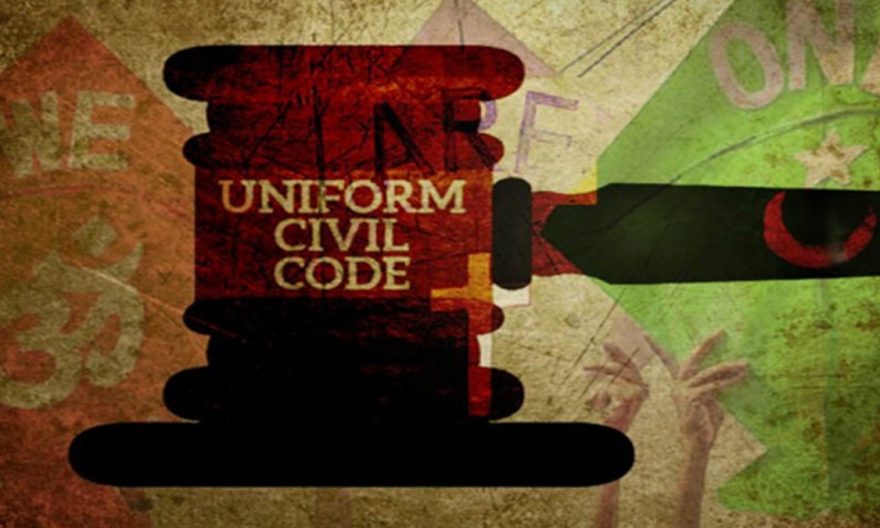
No one in our country, our political leaders or individuals, have ever concentrated their efforts towards defining the Uniform Civil Code, All we know is that some common law covering issues relating to marriage, succession and property is called Uniform Civil Code but what these laws would be is anyone’s guess. Now, what does our Constitution say about Uniform Civil Code? In article 44, our constitution clearly specifies the UCC: “The State shall endeavor to secure the citizen a Uniform Civil Code throughout the territory of India” The constitution is thus, very clear that unless a uniform civil code is followed, integration cannot be imbibed. However, the fact is that it is only a “directives principle” laid down in the constitution and as Article 37 of the Constitution itself makes clear, the directive principles “shall not be enforceable by any court” Nevertheless, they are “fundamental in the governance of the country”. This shows that although our constitution itself believes that a Uniform Civil Code should be implemented in some manner, it does not make this implementation mandatory and hence, it is time that an amendment should be made making UCC a mandatory action to be taken by the country.
WHY IS UCC IMPORTANT?
The human rights of women in India have always been associated with the personal laws which involve social institutions like marriage and family; Indeed, it is the personal laws which lay down the legal contours of the status of women in these social institutions. UCC
as envisaged under our Indian Constitution is time and again hailed to be the miraculous cure for all the social problems faced by the Indian women which has recently been reiterated in the case of Shayara Bano, wherein a 35 year old Muslim woman calls to ban the practice of triple talaq and declare it as unconstitutional. The practices of polygamy and halala have also been brought under the judicial scanner, This has once again raised the question that whether UCC will be the magic solution in weeding out such practices which are being considered as oppressive and anti-women not only by people belonging to other religion but even group of people belonging to the same religion?
The principle of UCC essentially involves the question of secularism. Secularism is a principle which needs to be analysed at great length. However, due to the different family laws, they are treated differently based on their religion. In my opinion, to some extent, this goes against the underlying principles of the Indian Constitution, also Due to the various family laws, there is an ambiguity amongst people, which leads to differentiation between them on the basis of their religion. Having a uniform civil code (UCC) will mean that all these different laws will be replaced by a new law which will be applicable for all, irrespective of their religion.
The country has already suffered a lot in the absence of a uniform code for all. It is rather a pity that the longest and most elaborately written constitution in the history of mankind, the Indian constitution is responsible for creation of erosion in society. The society has been fragmented in the name of religions, sects and sex and even at present, in India, there are different laws governing rights related to personal matters or laws like marriage, divorce, maintenance, adoption and inheritance for different communities. The laws governing inheritance or divorce among Hindus are thus, very different from those pertaining to Muslims or Christians and so on; In India, most family law is determined by the religion of the parties concerned Hindus, Sikhs, Jains and Buddhists come under Hindu law, whereas Muslims and Christians have their own laws. Further, The various divorce laws prevalent in India at present are also inexplicable and indifferent on some matter of dissent of marriage such as—Parsi law requires a three year period of separation and it could serve as a ground both for judicial separation or divorce, while Indian Divorce Act provides for a period of two year separation and makes it a ground for judicial separation only and it is to say that each law suffers from some deficiencies and identical matters show differences. Also, Only Hindus can adopt a child in the sense of affiliating him or her legally and confer on the child rights of property Others cannot adopt even if they want to do so. They have to take recourse to the Guardian and Wards Act, but guardianship over a child falls far short of conferring the legal status of a son on the ward.
National identity will be more secure and human resources much better utilised. It will add to the country’s growth and development; Indian Divorce Act, Christian Marriage Act, Hindu Succession Act , Shariat Act are unnecessary complications. A Uniform Civil Code embodies justice and there should be no compromise on it. One nation should have one civil code. It is now 70 years since the Constitution came into force. It is high time there was a decisive step towards a common civil code. If not now, then when?
The post AMENDMENT: UCC TO BE CHANGED FROM DPSP TO FUNDAMENTAL RIGHT appeared first on The Daily Guardian.




